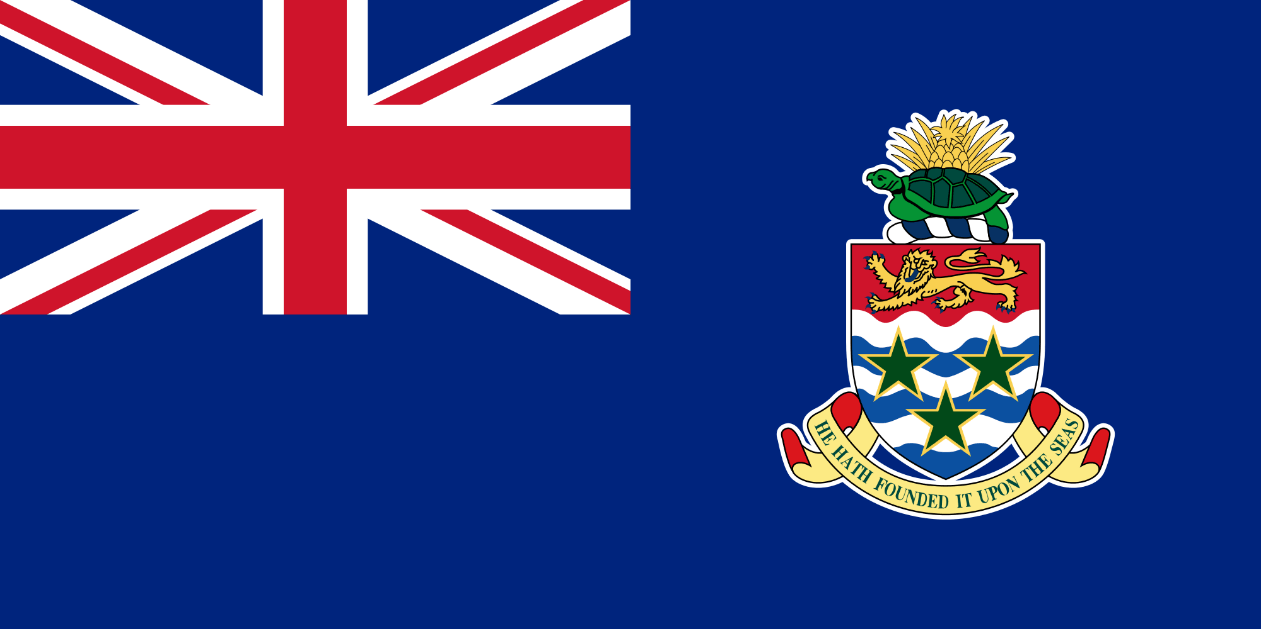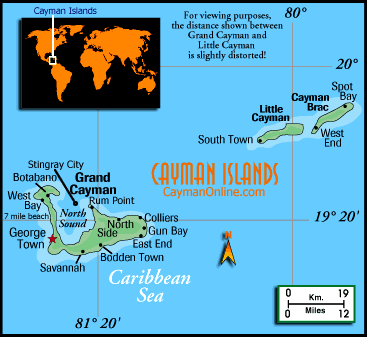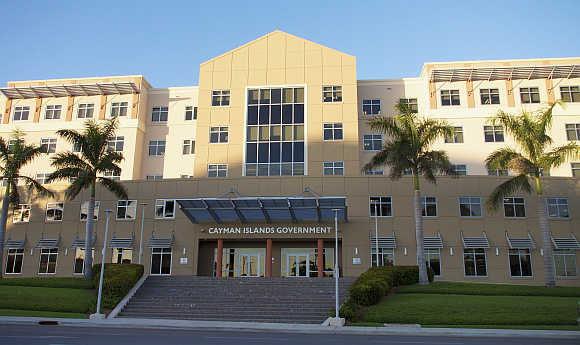
A Cayman Islands Exempted Company is governed by the Companies Law of 2013. The differences between a non-resident company and an exempted company are the following:
• An exempted company’s membership is private while a non-resident company must keep a register of members open for public inspection.
• Annual general meetings are not required and if held can be anywhere in the world while non-resident companies must hold them in the Cayman Islands.
• Exempted companies can change their Memorandum and Articles of Association with no restrictions by notifying the Registrar of the changes. Non-resident companies cannot do the same.
• The Registrar cannot automatically strike an exempted company from its register of companies for failing to pay renewal fees. The Registrar must provide at least one month’s notice before taking such actions.
• Exempted companies are not required to include the word “Limited” or its abbreviation “Ltd” at the end of its name as non-resident companies must do.
The best use for a Cayman Exempted Company is as a trading company or for holding overseas investments. There is no local taxation on corporate income, capital gains, inheritance or wealth tax. Though, you may be subject to the tax laws the country of which you are a resident or citizen. Such a company may not hire local employees (in the Caymans) or sign contracts with local residents.
Benefits
A Cayman Islands Exempted Company receive the following benefits:
• 100% Foreign Owners: Foreigners can own all the shares.
• Limited Liability: Only the unpaid amount for all the shares is a shareholder’s liability.
• Privacy: The names of the shareholders and directors are not available to the public. Bearer shares are permitted.
• No Taxation: The Cayman Islands do not levy any type of taxes on the company and shareholders. However, United States residents must declare all global income to the IRS just like residents of other countries taxing global income.
• One Shareholder/Director: Only one shareholder and one director is required who can be the same person.
• No Required Meetings: There are no requirements to hold shareholders or directors meetings.
• No Audits: There are no required accounting standards and no required audits.
• English: English is the official language.

Cayman Islands Exempted Company Name
As long as the proposed company name is not similar to any other legal entity’s name in the islands, exempted companies may choose a name in any language. They can even have a dual name in English and in another language without having to provide a translation.
Proposed names can be reserved for a limited time with the Registrar for a small fee.
Exempted companies are not required to use “Limited” or “Ltd” although they are limited liability companies.
Certain words may not be used with a company name as they are restricted including “bank”, “chartered”, and “royal”.
Types of Exempted Companies
The Companies Act provides for variations of exempted companies with different features:
Exempted Company – This type of company cannot engage in business inside the Cayman Islands with citizens or residents. However, they can contract with service providers to obtain internet, water, electricity, and other necessary services to run a business. To become registered, an applicant must file a declaration that no business will be conducted inside the islands.
Segregated Portfolio Company (SPC) – An exempted company is the only type which can apply to become a segregated portfolio company. The SPC can separate its assets and liabilities into portfolios independent of each other and the general assets of the company.
Exempted Limited Duration Company – This type of company limits its lifespan to a maximum of 30 years when it automatically dissolves.
Memorandum of Association
The constitution of a Cayman company are the Memorandum of Association and the Articles of Association. The Memorandum must contain this information:
• Company name;
• Initial subscribers’ names along with how many shares each one has subscribed (minimum of one share per subscriber);
• Purpose for the company;
• Registered office address;
• Declaration confirming the limited liability for its shareholders; and
• Authorized share capital in any currency.
Articles of Association
The Articles of Association describe the internal rules and regulations including:
• Shares issuance, types, how they are transferred, repurchased, or redeemed;
• Shareholders’ meetings;
• Shareholders’ voting rights;
• Appointment of officers and directors along with their powers, meetings, compensation, and indemnification;
• Dividends payments; and
• Winding-up towards dissolution.
A copy of the Articles of Association and the Memorandum of Association must be made available to all shareholders upon request.
Limited Liability
A shareholder’s liability is limited to his or her unpaid amount for all shares.

Registration
Two signed copies of the Articles of Association and the Memorandum of Association are filed with the Registrar of Companies who issues a Certificate of Incorporation. These documents will not be made available for public inspection.
Registered Office
Every company must have a local registered office whose location is filed with the Registrar and published by public notice. If the directors change its location it must be done by a formal resolution. A certified copy of the change of location resolution must be filed with the Registrar within 30 days of the resolution being passed.
Shareholders
A minimum of one shareholder is required who can be the sole director of the company.
A Registry of Members (shareholders) is required, but does not have to be kept at the registered office. Nor does the Registry of Members have to be available for inspection by the government or the public. The only exception is when an order for production is issued under the Tax Information Authority Law.
Shares may be issued:
• With or without nominal or par value;
• Negotiable or non-negotiable;
• Premium over par value:
• Issued in fractions of shares (with corresponding fractions of rights and liabilities);
• Issued with deferred, preferred, or other special rights; and
• Bearer shares (except when the company owns Cayman real property).
Share certificates are proof of ownership, but shares can be issued without certificates. Registered shares are also allowed.
Shares may be transferred if the Articles of Association provide for them or may restrict transfers.
Dividends may be paid out if the Articles of Association so provide.
Directors and Officers
A minimum of one director is required. Directors may be residents of and residing in any country. Since the Memorandum of Association lists the initial director(s), any removal and addition of directors must be in accordance with the Articles of Association.
Liabilities of the directors may be limited or unlimited according to the Articles of Association.
The Board of Directors is responsible for the management of the company and its officers. The Articles of Association should provide all the powers, duties, and responsibilities for the directors and officers.
The company has the option to appoint officers to manage the daily affairs like a President, Treasurer and/or a Secretary.
The names and addresses of the officers and directors must be maintained in a Registry of Directors & Officers stored at the registered office. Within 60 days of the first appointment, a copy of the Registry must be filed with the Registrar of Companies. The same requirements apply for any changes of directors or officers.

Accounting
The government does not require specific standards for accounting and bookkeeping. However, every company must maintain adequate accounting records showing income, expenses, assets, and liabilities. While the records do not have to be kept in the Cayman Islands, they must be available if the government and its tax authorities were to give notice or an order to inspect them.
There is no requirement for any audits or the appointment of auditors.
Minimum Authorized Capital
While not required, most exempted companies choose an authorized capital of $50,000 CI because this is the maximum capital a company can have to qualify for the lowest government registration fee.
Annual Filing
Every January each company must file a return with the Registrar declaring whether any changes to the Memorandum of Association, and all business was conducted outside of the islands and no trade was conducted inside the islands.
An annual renewal fee must be paid by December 31 for the next year. The fee is a sliding scale based upon the authorized share capital amount.
Taxes
There are no taxes. No income tax, no corporate tax, no capital gains taxes, no gift taxes, no inheritance taxes, no wealth tax, or any other tax for a company exclusively conducting business outside of the islands.
However, U.S. taxpayers must reveal all income to the IRS as will others living in countries taxing worldwide income.
Annual General Meeting
There is no requirement to hold an annual general meetings for the directors or the members (shareholders).
Public Records
The only documents filed with the Registrar are the Memorandum of Association and the Articles of Association which will not be made available to the public.
Registration Time
It is estimated that the process for registering an exempted company can take from 3 to 4 business days.
Shelf Companies
Shelf companies are not available to purchase in the Cayman Islands.
Conclusion
A Cayman Islands Exempted Company receive the following benefits: 100% foreign ownership, no taxes, privacy, limited liability, one shareholder/director for greater control, no audits, no required meetings, and English is their official language.






